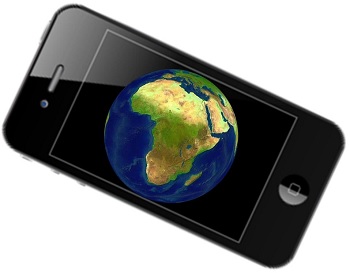The company has also hired their first chief information officer, which was recently announced.
With the goal of enhancing the smartphone based presence, the Chipotle’s Mexican Grill fast-casual chain has announced that it is placing a focus on mobile ordering and payments and that it has hired its first chief information officer.
Curt Garner, formerly the CIO of Starbucks, is now the first person to take this position at Chipotle’s.
This decision to hire a CIO has come at the same time that the company intends to broaden its mobile ordering and payment offerings, two features that are becoming quite commonplace throughout the fast casual and fast food sectors. In this, Chipotle’s is far from alone, as Starbucks, Panera, Domino’s and Taco Bell – among many others – have already been major players in this space. In fact, until now, those companies have been notably more aggressive in their m-commerce efforts than Chipotle’s.
The company believes that strategic expansion of mobile ordering and payments will change the way people interact with fast food.
 According to the founder, co-CEO, and chairperson of Chipotle’s, Steve Ells, “We are changing the way people think about and eat fast food.” He added that a central component of the vision of the company is their effort to offer customers the best possible restaurant experience. “As we look for ways to create efficiencies in our restaurants and improve the customer experience through the strategic use of technology, Curt’s experience and expertise make him an ideal and welcome addition to our management team.”
According to the founder, co-CEO, and chairperson of Chipotle’s, Steve Ells, “We are changing the way people think about and eat fast food.” He added that a central component of the vision of the company is their effort to offer customers the best possible restaurant experience. “As we look for ways to create efficiencies in our restaurants and improve the customer experience through the strategic use of technology, Curt’s experience and expertise make him an ideal and welcome addition to our management team.”
Before moving to Chipotle’s, Garner had held several different technology positions at Starbucks, spanning almost twenty years. That company has been crowned as the current ruler of the mobile payments segment and it has recently expanded its mobile app based ordering, as well, making it possible for customers to skip the line and simply pick up their orders.
This makes Garner a very strategic addition to Chipotle’s, which first announced that it would be rolling out mobile ordering on its Apple Watch app back in April. Not long afterward, officials from the company said they would be focusing on updating their mobile app for better efficiency.
A new report from the GSMA has shown that smartphone shopping and transactions are on the rise.
The most recent GSMA: Mobile 360 Series report, which focused on the Africa conference, showed that digital and m-commerce are rapidly rising in Africa and that this is being greatly driven by a boost in internet penetration throughout the continent.
The report’s findings were based on consumer research data that was collected in March 2015 by Ipsos.
What the report showed was that 20 percent of internet users in South Africa have made a purchase online either over computers or m-commerce. It also revealed that an additional 48 percent said that they expected to shop online in the future. It also said that mobile shopping will become a key component in the growth of the overall digital commerce market within Sub-Saharan Africa, since most internet users within that part of the world will be accessing the internet by way of smartphones and other mobile devices.
These findings and conclusions align well with those made by other m-commerce focused reports.
 A survey released by In Mobi in 2014 was already showing that 83 percent of consumers said that they intended to shop online over a smartphone or tablet in the following year. This was an increase of 15 percent over that firm’s figures from 2013 and it involved the participation of 14,000 people across 14 different countries.
A survey released by In Mobi in 2014 was already showing that 83 percent of consumers said that they intended to shop online over a smartphone or tablet in the following year. This was an increase of 15 percent over that firm’s figures from 2013 and it involved the participation of 14,000 people across 14 different countries.
This is only being helped by the fact that there are now several established online shopping sites within the Sub-Saharan African region and many of them are offering transactions that can be conducted cross-border. Jumia stands out among them. It has been around since 2012, at which time it was launched through the funding provided by Rocket Internet. That company has been greatly successful and has undergone a considerable expansion throughout that part of the continent, starting in Nigeria, but moving outward to a number of other countries such as Uganda, Kenya, Tanzania, Ghana, Cameroon and Senegal.
A central component of Jumia’s strategy is m-commerce. It has already entered in to partnerships with Millicom and MTN to push growth into the future through increases in traffic from mobile users by way of promotions, cross-selling, joint advertising campaigns and payment facilitation.
 According to the founder, co-CEO, and chairperson of Chipotle’s, Steve Ells, “We are changing the way people think about and eat fast food.” He added that a central component of the vision of the company is their effort to offer customers the best possible restaurant experience. “As we look for ways to create efficiencies in our restaurants and improve the customer experience through the strategic use of technology, Curt’s experience and expertise make him an ideal and welcome addition to our management team.”
According to the founder, co-CEO, and chairperson of Chipotle’s, Steve Ells, “We are changing the way people think about and eat fast food.” He added that a central component of the vision of the company is their effort to offer customers the best possible restaurant experience. “As we look for ways to create efficiencies in our restaurants and improve the customer experience through the strategic use of technology, Curt’s experience and expertise make him an ideal and welcome addition to our management team.”
 A survey released by In Mobi in 2014 was already showing that 83 percent of consumers said that they intended to shop online over a
A survey released by In Mobi in 2014 was already showing that 83 percent of consumers said that they intended to shop online over a 